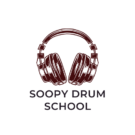In today’s digital age aspiring music producers no longer need to attend traditional brick-and-mortar institutions to pursue their dreams. Online music production degree offer a flexible path to mastering the art of creating professional-quality music from anywhere in the world.
These comprehensive programs combine technical training in digital audio workstations (DAWs) with fundamental music theory and business concepts. Students learn everything from sound design and mixing techniques to music copyright law and industry marketing strategies. The virtual learning environment provides hands-on experience with industry-standard software while allowing students to build their portfolios and collaborate with peers across the globe.
Online Music Production Degree
An online music production degree equips students with comprehensive audio engineering skills through virtual learning platforms. These programs combine technical training in digital audio workstations (DAWs) with foundational music theory concepts.
The curriculum integrates three core components:
- Technical Skills
- Audio recording techniques
- Digital signal processing
- Studio equipment operation
- Sound design fundamentals
- Creative Development
- Music composition methods
- Arrangement principles
- Beat production
- Mixing strategies
- Industry Knowledge
- Music business fundamentals
- Copyright regulations
- Marketing techniques
- Distribution platforms
Course delivery methods include:
- Video lectures
- Interactive assignments
- Virtual studio sessions
- Remote collaboration projects
- Online mentoring sessions
The degree structure typically spans:
| Program Level | Duration | Credits Required |
|---|---|---|
| Associate | 2 years | 60-70 |
| Bachelor’s | 4 years | 120-130 |
| Master’s | 2 years | 30-36 |
Students access industry-standard software applications:
- Pro Tools
- Logic Pro X
- Ableton Live
- FL Studio
- Studio One
These programs incorporate real-world projects where students create professional-quality recordings, produce original compositions, develop sound libraries.
Top Universities Offering Music Production Programs Online
Leading educational institutions provide accredited online music production degree that combine technical expertise with industry-relevant coursework. These programs feature specialized tracks certified by prominent music industry organizations.
Berklee College of Music Online
Berklee’s online music production program delivers comprehensive training through their proprietary virtual classroom platform. Students access 12-week courses in audio engineering, mixing techniques, and music business fundamentals led by Grammy-winning instructors. The program includes:
- Professional certification in Pro Tools, Logic Pro X, and Ableton Live
- Live feedback sessions with industry professionals
- Access to Berklee’s exclusive sample libraries and virtual instruments
- Collaborative projects with international student producers
Full Sail University
Full Sail’s 29-month online bachelor’s degree in music production integrates project-based learning with accelerated courses. The curriculum features:
- 24/7 access to cloud-based production software
- Monthly producer workshops with industry veterans
- Project LaunchBox containing professional audio interfaces and microphones
- Custom-designed courses in modern music marketing and distribution
- Real-time mixing sessions with professional audio engineers
- Specialized courses in sound design for games and media
- Industry partnerships for internship opportunities
- Portfolio development with personalized faculty mentoring
| University | Program Duration | Key Software Training | Industry Certifications |
|---|---|---|---|
| Berklee | 12-16 months | Pro Tools, Logic Pro X | Avid Certification |
| Full Sail | 29 months | Pro Tools, Ableton | Apple Logic Certification |
| Academy of Art | 36 months | Pro Tools, Reason | AVID Pro Tools Expert |
Core Curriculum and Course Requirements
Online music production degrees integrate technical expertise with creative musicianship through structured courses designed for the digital era. Each component builds essential skills for modern music production careers.
Music Theory and Composition
Students master fundamental music concepts through courses in harmony, melody writing and song structure. The curriculum covers music notation software like Sibelius, chord progressions, scales, rhythmic patterns and orchestration techniques. Coursework includes creating original compositions, analyzing existing works and developing arrangements across multiple genres including pop, rock, jazz and electronic music.
Digital Audio Workstations (DAW)
DAW training focuses on industry-standard platforms like Pro Tools, Logic Pro X and Ableton Live. Students learn track organization, MIDI sequencing, virtual instruments and audio editing workflows. Hands-on projects involve:
- Recording and editing audio tracks
- Programming drum patterns and bass lines
- Mixing with plugins and effects processors
- Creating automation for dynamic mixes
- Exporting final masters in various formats
Sound Engineering Fundamentals
The technical foundation includes acoustics, signal flow and audio processing concepts. Key topics covered:
| Topic | Skills Developed |
|---|---|
| Signal Processing | EQ, compression, reverb, delay |
| Microphone Techniques | Placement, polar patterns, gain staging |
| Studio Setup | Monitor configuration, room treatment, cabling |
| Recording Methods | Direct recording, re-amping, live tracking |
Students practice these skills through recording sessions, mixing exercises and sound design projects using professional equipment and software tools.
Career Opportunities with a Music Production Degree
Music production graduates enter a diverse job market with positions in recording studios, live venues, broadcasting networks, and digital media platforms. These roles combine technical expertise with creative decision-making abilities.
Studio Producer Roles
Studio producers oversee recording sessions, mix tracks, and collaborate with artists to create professional recordings. Entry-level positions include:
- Assistant Producer: Sets up equipment, maintains session logs, manages recording schedules
- Mix Engineer: Balances audio tracks, applies effects processing, ensures sonic clarity
- Recording Engineer: Operates recording equipment, positions microphones, monitors signal levels
- Digital Audio Editor: Edits vocal takes, corrects timing issues, processes audio files
- Post-Production Specialist: Creates sound effects, syncs audio to video, masters final tracks
| Studio Producer Position | Average Starting Salary | Experience Required |
|---|---|---|
| Assistant Producer | $35,000 | 0-2 years |
| Mix Engineer | $45,000 | 2-4 years |
| Recording Engineer | $42,000 | 1-3 years |
- Front of House Engineer: Controls main sound mix for audience experience
- Monitor Engineer: Manages on-stage audio monitoring systems for performers
- Systems Technician: Sets up audio equipment, troubleshoots technical issues
- Tour Sound Manager: Coordinates audio requirements for touring productions
- Venue Audio Director: Oversees sound operations for entertainment facilities
| Live Sound Position | Average Starting Salary | Peak Event Season |
|---|---|---|
| Front of House Engineer | $48,000 | Summer Months |
| Monitor Engineer | $42,000 | Spring/Fall |
| Systems Technician | $38,000 | Year-round |
Cost and Financial Considerations
Online music production degree costs vary based on program level, institution type and credit requirements. Public universities charge $300-$500 per credit hour while private institutions range from $700-$1,200 per credit hour.
Tuition and Program Expenses
| Expense Category | Typical Cost Range |
|---|---|
| Bachelor’s Degree Total | $24,000-$96,000 |
| Associate Degree Total | $12,000-$48,000 |
| Software Licenses | $500-$2,000/year |
| Audio Equipment | $1,000-$3,000 |
| Technology Fees | $200-$500/semester |
Financial Aid Options
- Federal grants provide up to $6,495 through Pell Grant programs for qualifying students
- Institutional scholarships offer $1,000-$10,000 based on merit or need
- Industry-specific grants from organizations like Grammy U support music production students
- Work-study programs enable students to earn $2,000-$5,000 per academic year
- Private student loans cover remaining costs with variable interest rates
Hidden Costs to Consider
- Digital Audio Workstation (DAW) subscriptions: $200-$600 annually
- Cloud storage for project files: $100-$300 per year
- Virtual instrument libraries: $500-$2,000 for professional collections
- Audio interface upgrades: $200-$800 for professional equipment
- Online collaboration tools: $150-$400 annually
- Transfer credits from community colleges at $150-$200 per credit hour
- Apply for equipment grants ranging from $500-$2,500
- Purchase educational versions of software at 40-70% discount
- Join student organizations for group purchasing power
- Take advantage of included software licenses with tuition packages
Technology Requirements and Setup
Online music production students require specific hardware and software tools to participate effectively in their coursework:
Essential Hardware Components:
- Computer: Mac or PC with minimum 16GB RAM
- Audio interface: Focusrite Scarlett 2i2 or equivalent
- Studio headphones: Audio-Technica ATH-M50x or similar
- MIDI keyboard controller: 49-key minimum
- Microphone: Shure SM58 or comparable condenser mic
- External hard drive: 1TB minimum for project storage
Required Software Applications:
- Digital Audio Workstation (Pro Tools, Logic Pro X or Ableton Live)
- Music notation software (Sibelius or Finale)
- Audio plugins for mixing and mastering
- Virtual instruments and sample libraries
- Video conferencing software for virtual classes
Internet Requirements:
| Specification | Minimum Speed | Recommended Speed |
|---|---|---|
| Download | 10 Mbps | 25+ Mbps |
| Upload | 5 Mbps | 10+ Mbps |
| Latency | <100ms | <50ms |
- Dedicated quiet space: 100 square feet minimum
- Basic acoustic treatment: Bass traps, diffusers, absorption panels
- Ergonomic chair for extended studio sessions
- Adjustable desk or workstation
- Proper lighting to reduce eye strain
- Multiple monitor setup for enhanced workflow
- IT helpdesk for software troubleshooting
- Virtual studio technicians for hardware setup
- Cloud backup systems for project files
- Remote access to school servers
- Software license management tools
Time to Completion and Program Formats
An online music production degree offers flexible formats that accommodate various scheduling needs. Full-time bachelor’s programs take 36-48 months to complete while part-time options extend to 72 months. Associate degrees require 18-24 months of study.
Program delivery formats include:
- Asynchronous Learning: Students access course materials 24/7 through recorded lectures, tutorials, and assignments
- Synchronous Sessions: Live virtual classes at scheduled times for real-time collaboration with instructors
- Hybrid Models: Combination of online coursework with optional in-person studio sessions
- Accelerated Tracks: Intensive 8-week courses that reduce total completion time by 25%
Course scheduling options feature:
- Quarter System: Four 10-week terms per academic year
- Semester Format: Two 15-week terms with optional summer sessions
- Year-Round Enrollment: Monthly start dates with continuous course progression
- Self-Paced Modules: Flexible completion deadlines within term boundaries
| Program Type | Full-Time Duration | Part-Time Duration | Credits Required |
|---|---|---|---|
| Associate | 18-24 months | 36 months | 60-65 |
| Bachelor’s | 36-48 months | 72 months | 120-128 |
| Certificate | 6-12 months | 18 months | 15-30 |
Students complete weekly assignments with deadlines that maintain steady progress while accommodating work schedules. Most programs require 15-20 hours per week for full-time study or 8-10 hours for part-time enrollment.
Online Education for Music Production
An online music production degree represents a dynamic gateway into today’s evolving music industry. The combination of technical training flexible learning formats and industry connections makes these programs an attractive choice for aspiring producers and audio professionals.
Students who pursue this path gain more than just technical skills – they develop a comprehensive understanding of music production while building valuable industry connections. With the right dedication and commitment these programs can launch successful careers in recording studios broadcast networks and various entertainment sectors.
The future of music production education continues to expand through online platforms making it easier than ever to turn musical passion into professional expertise.

